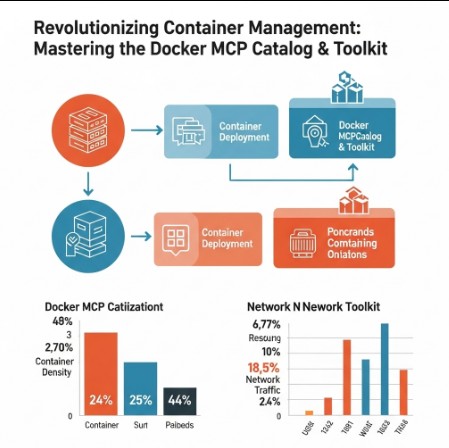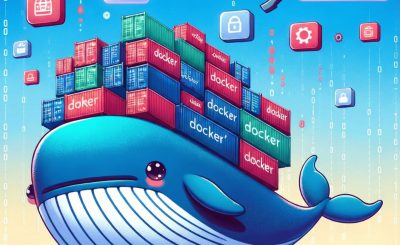Are you struggling to manage the complexities of your containerized applications? Finding the right tools and images can be a time-consuming and frustrating process. This comprehensive guide dives deep into the newly launched Docker MCP Catalog Toolkit, a game-changer for streamlining container management. We’ll explore its features, benefits, and how you can leverage it to optimize your workflow and improve efficiency. This guide is designed for DevOps engineers, developers, and anyone working with containerized applications seeking to enhance their productivity with the Docker MCP Catalog Toolkit.
Table of Contents
Understanding the Docker MCP Catalog and its Power
The Docker MCP (Managed Container Platform) Catalog is a curated repository of trusted container images and tools specifically designed to simplify the process of building, deploying, and managing containerized applications. Gone are the days of manually searching for compatible images and wrestling with dependencies. The Docker MCP Catalog Toolkit provides a centralized hub, ensuring the images you use are secure, reliable, and optimized for performance.
Key Features of the Docker MCP Catalog
- Curated Images: Access a wide variety of pre-built, verified images from reputable sources, reducing the risk of vulnerabilities and compatibility issues.
- Simplified Search and Filtering: Easily find the images you need with powerful search and filtering options, allowing for precise selection based on specific criteria.
- Version Control and Updates: Manage image versions effectively and receive automatic notifications about updates and security patches, ensuring your deployments remain up-to-date.
- Integrated Security Scanning: Built-in security scans help identify vulnerabilities before deployment, strengthening the overall security posture of your containerized applications.
Diving into the Docker MCP Catalog Toolkit
The Docker MCP Catalog Toolkit extends the functionality of the Docker MCP Catalog by providing a suite of powerful tools that simplify various aspects of the container lifecycle. This toolkit significantly reduces the manual effort associated with managing containers and allows for greater automation and efficiency.
Utilizing the Toolkit for Optimized Workflow
The Docker MCP Catalog Toolkit streamlines several crucial steps in the container management process. Here are some key advantages:
- Automated Image Building: Automate the building of custom images from your source code, integrating seamlessly with your CI/CD pipelines.
- Simplified Deployment: Easily deploy your containerized applications to various environments (on-premise, cloud, hybrid) with streamlined workflows.
- Centralized Monitoring and Logging: Gain comprehensive insights into the performance and health of your containers through a centralized monitoring and logging system.
- Enhanced Collaboration: Facilitate collaboration among team members by providing a centralized platform for managing and sharing container images and configurations.
Practical Example: Deploying a Node.js Application
Let’s illustrate a simplified example of deploying a Node.js application using the Docker MCP Catalog Toolkit. Assume we have a Node.js application with a Dockerfile already defined:
FROM node:16
WORKDIR /app
COPY package*.json ./
RUN npm install
COPY . .
CMD [ "npm", "start" ]
Using the Docker MCP Catalog Toolkit, we can automate the image building, tagging, and pushing to a registry, significantly simplifying the deployment process.
Advanced Features and Integrations
The Docker MCP Catalog Toolkit boasts advanced features for sophisticated container orchestration and management. These features cater to large-scale deployments and complex application architectures.
Integration with Kubernetes and Other Orchestration Tools
The Docker MCP Catalog Toolkit seamlessly integrates with popular container orchestration platforms like Kubernetes, simplifying the deployment and management of containerized applications within a Kubernetes cluster. This integration streamlines the process of scaling applications, managing resources, and ensuring high availability.
Automated Rollbacks and Canary Deployments
The toolkit enables sophisticated deployment strategies like automated rollbacks and canary deployments. This allows for controlled releases of new versions of your applications, minimizing the risk of disrupting services and allowing for quick reversals if issues arise.
Customizing the Toolkit for Specific Needs
The flexibility of the Docker MCP Catalog Toolkit allows for customization to meet the unique requirements of your organization. This could include creating custom workflows, integrating with existing monitoring systems, and tailoring the security policies to fit your specific security needs. The power and adaptability of the Docker MCP Catalog Toolkit make it a valuable asset for organizations of all sizes.
Frequently Asked Questions
Q1: Is the Docker MCP Catalog Toolkit free to use?
A1: The pricing model for the Docker MCP Catalog Toolkit may vary depending on the specific features and level of support required. It’s advisable to check the official Docker documentation or contact Docker support for detailed pricing information.
Q2: How secure is the Docker MCP Catalog?
A2: The Docker MCP Catalog prioritizes security. It employs robust security measures, including image scanning for vulnerabilities, access controls, and regular security audits to ensure the integrity and safety of the hosted images. This minimizes the risk of deploying compromised images.
Q3: Can I contribute my own images to the Docker MCP Catalog?
A3: Contribution guidelines may be available depending on Docker’s policies. Check the official Docker documentation for information on contributing your images to the catalog. This usually involves a review process to ensure quality and security standards are met.
Q4: How does the Docker MCP Catalog Toolkit integrate with my existing CI/CD pipeline?
A4: The Docker MCP Catalog Toolkit provides APIs and integrations for seamless integration with various CI/CD tools. This allows you to automate the build, test, and deployment processes as part of your existing workflows, enhancing the automation within your DevOps pipeline.

Conclusion
The Docker MCP Catalog Toolkit represents a significant leap forward in container management, simplifying complex tasks and dramatically improving developer productivity. By providing a centralized, curated repository of trusted container images and a comprehensive suite of tools, Docker empowers developers and DevOps engineers to focus on building and deploying applications rather than wrestling with the intricacies of container management. Mastering the Docker MCP Catalog Toolkit is essential for any organization looking to optimize its containerization strategy and unlock the full potential of its containerized applications. Remember to always stay updated with the latest releases and best practices from the official Docker documentation for optimal utilization of the Docker MCP Catalog Toolkit.
For more information, please refer to the official Docker documentation: https://www.docker.com/ and https://docs.docker.com/ (replace with actual relevant links if available). Thank you for reading the DevopsRoles page!
